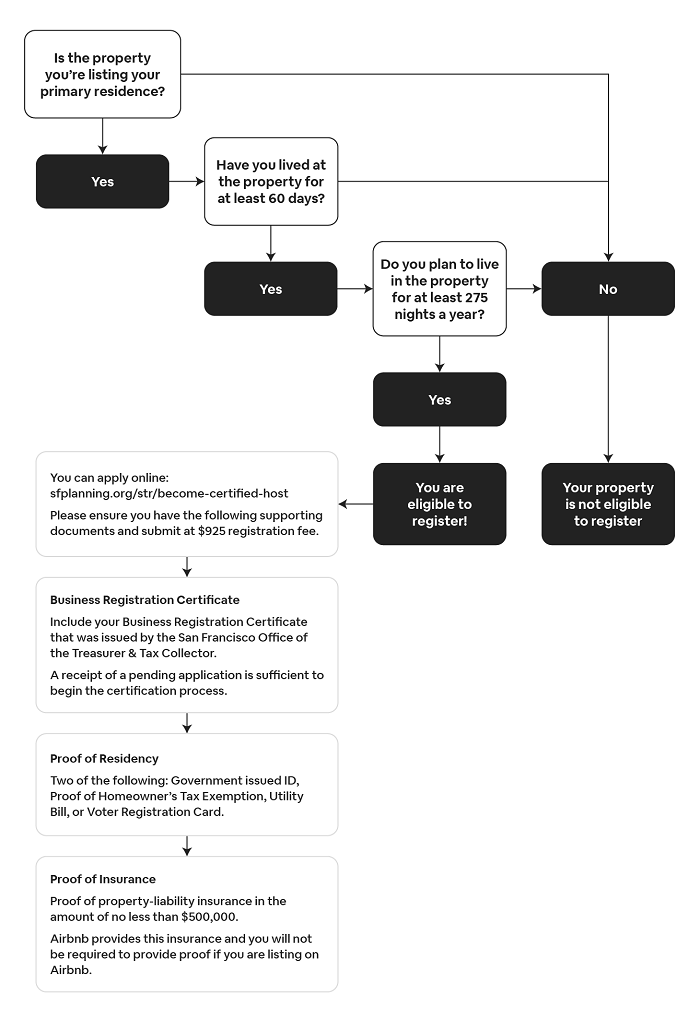Where Is Airbnb Banned? A Global Guide to Short-Term Rental Restrictions

Curious about where Airbnb is off-limits? Check out our guide to get the scoop on global short-term rental rules and how to stay on the right side of the law.
If you've done any traveling in the last 10 years, you're no stranger to short-term rental platforms like Airbnb. They've revolutionized travel because they offer budget-conscious travelers unique accommodations in cities all over the world.
However, this boom has stirred controversy in many cities, particularly those grappling with housing shortages, rising housing costs, and community disruptions. In response, city officials have implemented new rules—ranging from detailed regulations to outright banning short-term rentals—aimed at balancing tourism with the needs of local residents.
For Airbnb hosts, property owners, and travelers, staying informed about where short-term rentals face restrictions is essential to ensuring compliance with local laws and being a responsible host. This guide will give you the lowdown on Airbnb no-go zones and how to navigate them.
Why Are Cities Restricting or Banning Airbnb?
There are a couple of reasons. As wonderful as it is for hosts that the short-term rental market is booming, it's had a couple of adverse effects on the housing market of these top locations.
1. Impact on Housing Affordability and Availability
In high-demand rental markets, short-term rental platforms often exacerbate housing affordability issues. Properties once available as long-term rentals are converted into short-term rental units, reducing the housing availability for full-time residents. Not to mention the impact on rent prices and housing prices in general.
A study conducted in 2022 found that cities with dense Airbnb rentals experienced rent increases of 3% on average. San Francisco and New York City, for example, saw rises exceeding 5% in certain neighborhoods during the same period.
This trend, driven by real estate investors and property owners prioritizing vacation properties over long-term leases, has led city officials to enforce regulations to reclaim homes for long-term residents.
2. Community Concerns and Local Impact
Frequent guest turnover from short-term rentals can disrupt quiet residential neighborhoods. Local residents often report increased noise, street parking issues, and trash, particularly in areas with high concentrations of Airbnb listings.
Cities like Barcelona and Paris have imposed new regulations to preserve the character of residential neighborhoods. These include strict licensing caps and limits on short-term rental units, ensuring a balance between accommodating tourists and protecting the daily lives of local residents.
3. Economic and Regulatory Challenges
Unlike traditional hotels, Airbnb hosts in many cities avoid paying hotel taxes and adhering to safety regulations. This creates an uneven playing field and reduces tax revenue.
Cities like Los Angeles and New York have introduced special enforcement measures, requiring short-term rental platforms to share host data and ensure taxes are collected. In New York City, recent new rules impose significant fines—up to $5,000—for illegal short-term rentals.
Cities with Stringent Airbnb Regulations
We'll start in the US with the biggest cities to make headlines for their regulations around short-term rentals.
Major cities are implementing strict short-term rental policies to address housing challenges and ensure a fair balance between tourism and the needs of local residents. While these rules can seem daunting for hosts, they also provide a roadmap for sustainable and compliant hosting.
Let’s explore how some iconic cities are leading the charge.
San Francisco, California
San Francisco was one of the first cities to tackle the growing impact of short-term rentals, introducing detailed regulations to protect its housing market. Its requirements for primary residency and strict caps on short-term stays reflect a commitment to preserving housing for locals while managing tourism responsibly.
In San Francisco, anyone renting out a home for short-term stays (less than 30 days) on platforms like Airbnb have to get two certificates:
- Business Registration Certificate
- Short-Term Rental Registration Certificate.
Starting March 2022, hosts need to register and renew their short-term rentals directly with the city instead of through Airbnb, as was previously permitted. Airbnb provided this nifty flowchart to determine eligibility.

- Requirements: Hosts must register with the city, use the property as their primary residence for at least 275 days per year, and cap short-term rentals at 90 days annually.
- Penalties: Non-compliance results in fines starting at $484 per day.
- Unique Aspects: One of the first major cities to regulate short-term rentals, San Francisco continues to refine its policies to address housing affordability and tax revenue concerns.
New York City, New York
As one of the most densely populated cities in the U.S., New York City has adopted some of the toughest short-term rental regulations globally. The focus on reclaiming housing for long-term residents and mitigating rent increases has made compliance essential for local hosts.
- Requirements: Hosts must live on-site, cannot rent entire apartments for stays under 30 days, and must register with the city.
- Recent Developments: A 2023 crackdown by the New York City Council introduced fines of up to $5,000 for illegal listings.
- Context: Known for some of the world's strictest rules, New York City's policies aim to reclaim housing stock and curb the effects of short-term rental platforms on median rent and housing supply.
Las Vegas, Nevada
Las Vegas, a global tourist hotspot, has implemented stringent short-term rental regulations to preserve its residential neighborhoods and address safety concerns. With caps on permits and strict zoning requirements, the city aims to maintain a balance between tourism and community welfare.
- Requirements: Hosts must obtain a short-term rental permit, with the number of permits capped by local jurisdictions. Rentals must be at least 660 feet away from another licensed property.
- Penalties: Violations can result in fines of up to $10,000 per day.
- Unique Aspects: The city’s focus on zoning and safety measures reflects its goal of safeguarding residential areas while accommodating its large influx of tourists.

International Regulations: Key Cities and Their Policies
Short-term rental regulations aren’t just a local issue—they’re a global trend. If you're a subscriber of our STR News Digest, then you'll have heard about all the regulatory news from abroad. There's been a slew of regulatory updates across Europe as Barcelona and other cities crack down on both legal and illegal short-term rentals.
Most notably Barcelona nearly put a de facto ban on short-term rentals in an attempt to curb overtourism. This followed mass protests and hostility from locals against tourists, spraying them with water guns and yelling at them to "leave their city".
Let's get into the details.
Barcelona, Spain
Barcelona has become a focal point in the debate over short-term rentals, driven by a surge in tourism that locals feel has overwhelmed the city.
The government’s aggressive crackdown, including hefty fines and strict licensing requirements, reflects its commitment to prioritizing residents' needs and combating illegal rentals.
- Requirements: Licensing is mandatory, with new licenses tightly restricted in tourist-heavy zones.
- Recent Developments: Repeat offenders face fines of up to €60,000.
- Notable Aspects: Barcelona prioritizes the needs of long-term residents while managing the influx of budget-conscious travelers.
Paris, France
Paris, one of the most visited cities in the world, has implemented firm rules to address its housing crisis and ensure short-term rentals don’t outpace local needs. Its annual cap on short-term stays is designed to prevent homes from being taken off the market for permanent residents.
- Requirements: Hosts must register properties, limiting short-term rentals of primary residences to 120 days annually.
- Penalties: Fines for illegal Airbnb listings can exceed thousands of euros.
- Implications: By enforcing strict caps, city officials aim to mitigate housing shortages while balancing the demands of tourism.
Berlin, Germany
Berlin is a pioneer in regulating short-term rentals, driven by a deepening housing crisis. The city has set strict limits on rental durations and requires permits for entire-home rentals to protect affordable housing stock for locals.
- Requirements: Renting out entire homes on a short-term basis requires permits, with strict caps on durations.
- Enforcement: The city imposes substantial fines on unauthorized rentals.
- Context: Berlin’s housing crisis has made it a leader in curbing the influence of short-term rental platforms.
Navigating Short-Term Rental Regulations as a Host
The world of short-term rentals is evolving, but that doesn’t mean your hosting journey has to hit a dead end. With a proactive approach and a willingness to adapt, hosts can navigate these changes successfully and even discover new opportunities.
Whether it’s by rethinking your rental strategy, staying ahead of regulations, or finding ways to work harmoniously with local communities, there’s plenty of potential to keep your business thriving while aligning with the new landscape.
Adaptation Strategies for Hosts
For small-time hosts, staying informed about local laws and ensuring compliance is critical. Registering your property, limiting stays, and considering alternatives like renting private rooms instead of entire apartments can help you stay within legal boundaries.
Building positive relationships with local residents and proactively addressing concerns about noise and parking can also help reduce community tensions.
Tips for Adapting to Changing Rules
- Embrace sustainable hosting practices, such as adhering to occupancy caps and rental limits.
- Explore transitioning to long-term leases or focusing on primary residences to maintain consistent income.
- Stay updated on host data sharing requirements and new regulations in your city to avoid penalties.
The Future of Airbnb and Short-Term Rentals
It’s not all doom and gloom for Airbnb hosts and short-term rental operators. Yes, regulations are tightening, and the landscape is shifting, but with change comes opportunity. Many hosts are already thriving by adapting to these new rules and embracing sustainable, community-focused hosting practices.
By staying flexible, exploring emerging markets, and aligning with evolving trends, it’s still very possible to run a successful vacation rental business. With the right mindset and tools, hosts can not only survive but thrive in this dynamic industry.
Regulatory Trends and Predictions
As cities introduce stricter policies, platforms like Airbnb will likely move toward sustainable hosting models and closer collaboration with city officials.
Over the next decade, we can expect a stronger focus on improving tax collection, addressing affordable housing issues, and finding a balance between tourism and local community needs.
Sustainable and Community-Centric Hosting
Looking ahead, successful Airbnb hosting will center on compliance, making a positive community impact, and catering to shifts in demand—like longer stays or offering private rooms.
This collaborative approach between hosts, platforms, and local governments can help build a model that fosters tourism while addressing housing concerns and preserving quality of life for residents. By embracing these changes, hosts can position themselves at the forefront of a more sustainable and community-driven rental market.

Final Thoughts
Cities are tightening up short-term rental rules to tackle the challenges of overtourism. With crowded streets, strained public services, and rising property prices, many urban hubs are rethinking how to balance tourism’s perks with residents’ quality of life. This means hosts might need to shift their focus from busy city centers to less crowded areas—bringing both hurdles and fresh opportunities.
Staying on top of new regulations and market trends is more important than ever. It’s not just about finding new locations—it’s also about hosting responsibly and keeping things sustainable for the community. By doing so, short-term rentals can remain a thriving and sustainable option in the rental market.
That’s where a smart tool like iGMS comes in. It takes the stress out of managing rentals by automating routine tasks, streamlining guest communication, and helping you stay compliant with local rules. Whether you’re managing one property or several, iGMS gives you the tools to save time, boost profits, and create amazing guest experiences while keeping up with the shifting short-term rental landscape.




![Complete Vacation Rental Email Marketing for Hosts [+ Top Tools]](/content/images/size/w600/2026/01/email-marketing.jpg)


